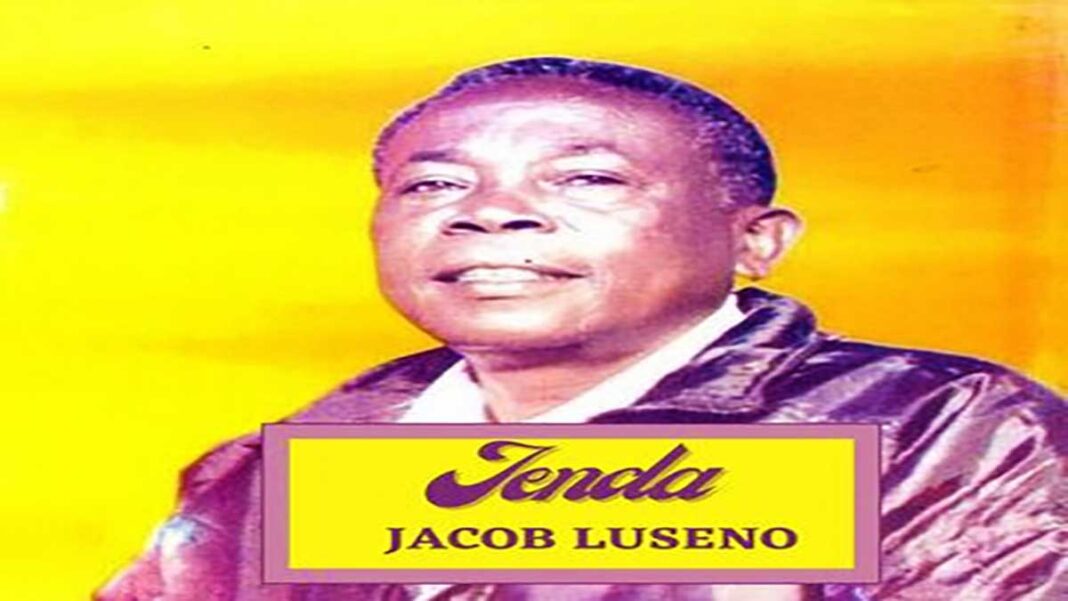Jacob Luseno, a legendary and well-known music composer, passed away in 2006.
Jacob Luseno was born in the year 1936. He enrolled in Tiriki’s Goibei Intermediate School, where he began singing traditional Luhya songs. Jacob’s education was disrupted temporarily when his parents relocated from Tiriki land to Mumbetsa Imasaba in Idakho, where he enrolled at Mwikhomo Intermediate School.
Luseno began working for Pepsi Cola in Eldoret as a driver bringing products to Uganda. The most startling aspect of Luseno’s time at Pepsi Cola was that he traveled around with his handcrafted guitar.
He went from Pepsi Cola to the Salsbury Hotel in Kericho, and then to Nairobi to work as a laundry machine operator.
Following Mwikhomo, the legend went to work for Pepsi Cola in Eldoret as a driver bringing the product to Uganda. The most startling aspect of Luseno’s time at Pepsi Cola was that he traveled around with his handcrafted guitar.
He went from Pepsi Cola to the Salsbury Hotel in Kericho, and then to Nairobi to work as a laundry machine operator. With a burning passion for music, Luseno resigned his job and joined Starlight Night Club, Nairobi’s leading nightclub owned by Armstrong.
He met other music superstars like Daudi Kabaka and Fadhili Williams here.
He founded the Nabongo Success Band and released his first hit single, Jane Wanje. Jane was his eldest daughter, and this song was written in memory of his dearly adored daughter Jane. Following that, he wrote songs like as Injete Muteithi, Ikwenjeri, Inzala Liani, and Useni Mwana, among others.
Even without the maestro, the music continues. In 1965, the iconic singer created the famed Phonetex Band with Gertrude Mwendo, with Isaya Mwinamo and Fadhili Williams as the initial producers.
The band sings mostly in Luhya, with a few Swahili songs thrown in for good measure.
His son, Obed Luseno, and Julius Etenya, who sing in traditional Ingolo style rather than lipala, currently lead the band. Mutivo and Mabeka constitute two other styles.
After quitting the Star Light Club in 1979, Luseno stayed underground for a while. He rose to prominence once more with the band Indumba Jazz, with whom he released singles such as Dinnah, Rael Nandi, Nabongo, and Ikhabi Yanje, among others.
Luseno stepped away from the music scene for the second time in 8 years, and after a long break, he teamed up with Zamalek’s music producer and singer Samule Libayi Omusula.
Luseno was like a burning dry shrub while with Zamalek, recording hit songs like Mukangala, Khutsi Khungo, Lenah Kumi Kumi, Ingokho ya Malore, Appointment, Narc Shihubi, Wrong Reverend, Shifwabi, and others.
He was joined by another local musician, Omari Macho, with whom he recorded his final song, Akanire (Has Refused). In 2004, he released Nyina Mwana, which means “mother of children.” Luseno began performing live in Nairobi’s Kawangware Estate’s BoraBora Club in 2004.
The original Phonetex Band broke into two – Phonetex the “original one” and Phonetex the “rebel band” – at this point. The band allegedly disbanded due to misunderstandings among its members.
The original Phonetex Band still exists today, and is managed by Luseno’s only surviving son, Obed Luseno. It still features Getrude Mwendo, Luseno’s famed lady vocalist, and Julius Shivachi, better known as Itenya.
Since his death, members of the band have released successes such as Likhutsa lia Luseno (Death of Luseno), Speed Governor, and Soldier. Soldier describes a robust and powerful gentleman who travels to the city in quest of work but eventually ends up in greater trouble as a watchman.
Luseno passed away after a brief illness. While on his sickbed, his only son Obed took him from Nairobi to his house in Mumbetsa, where he died on January 3, 2006. Luseno was ultimately laid to rest on January 14, 2006, at his home in Mumbetsa.
Luseno is survived by his wife, Florence Luseno, and his son, Obed, who is married to Christine. In January, family, friends, and clansmen gather at his Mumbetsa home in Idakho to commemorate the legend’s life.

